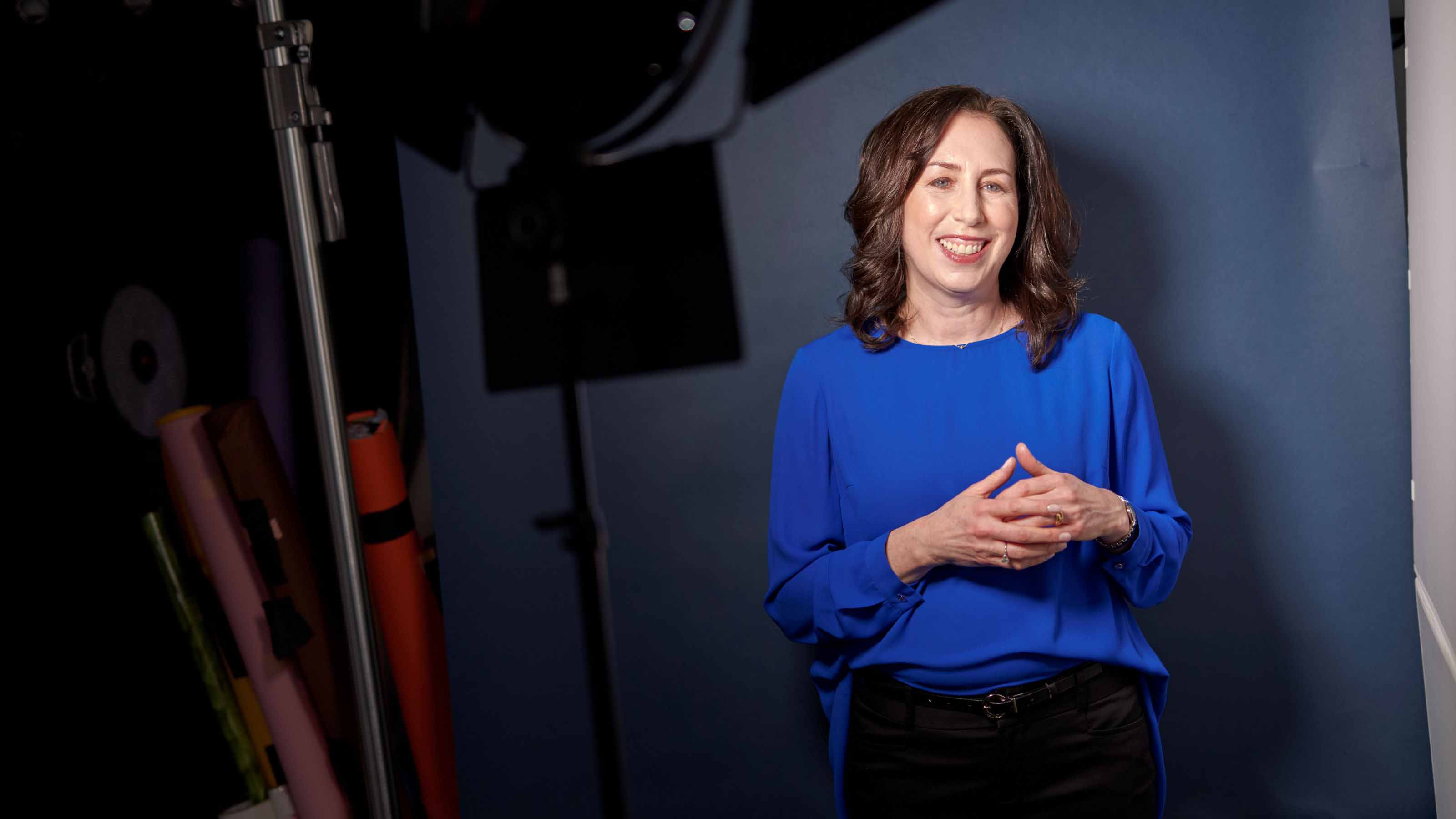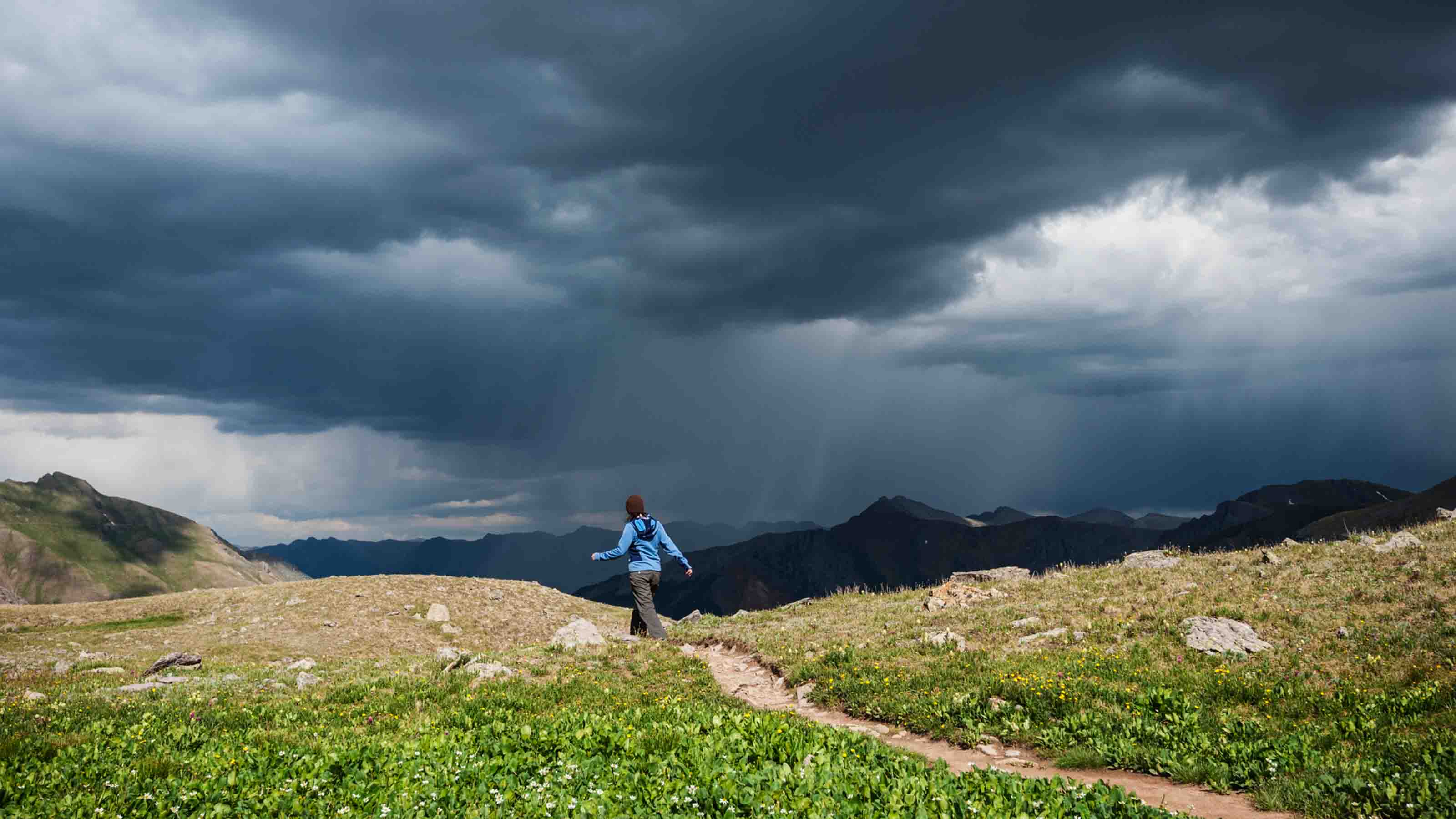PODCAST: How’s the Gig Economy Faring, with Kathy Kristof
As with so many things, the pandemic has had a big effect on side hustles and contract work. We talk with an expert in the field on finding a good gig. Also, there’s a lot of noise about inflation these days.

Profit and prosper with the best of Kiplinger's advice on investing, taxes, retirement, personal finance and much more. Delivered daily. Enter your email in the box and click Sign Me Up.
You are now subscribed
Your newsletter sign-up was successful
Want to add more newsletters?

Delivered daily
Kiplinger Today
Profit and prosper with the best of Kiplinger's advice on investing, taxes, retirement, personal finance and much more delivered daily. Smart money moves start here.

Sent five days a week
Kiplinger A Step Ahead
Get practical help to make better financial decisions in your everyday life, from spending to savings on top deals.

Delivered daily
Kiplinger Closing Bell
Get today's biggest financial and investing headlines delivered to your inbox every day the U.S. stock market is open.

Sent twice a week
Kiplinger Adviser Intel
Financial pros across the country share best practices and fresh tactics to preserve and grow your wealth.

Delivered weekly
Kiplinger Tax Tips
Trim your federal and state tax bills with practical tax-planning and tax-cutting strategies.

Sent twice a week
Kiplinger Retirement Tips
Your twice-a-week guide to planning and enjoying a financially secure and richly rewarding retirement

Sent bimonthly.
Kiplinger Adviser Angle
Insights for advisers, wealth managers and other financial professionals.

Sent twice a week
Kiplinger Investing Weekly
Your twice-a-week roundup of promising stocks, funds, companies and industries you should consider, ones you should avoid, and why.

Sent weekly for six weeks
Kiplinger Invest for Retirement
Your step-by-step six-part series on how to invest for retirement, from devising a successful strategy to exactly which investments to choose.
Listen Now:
Subscribe FREE wherever you listen:
Links and resources mentioned in this episode:
- Kiplinger's Inflation Forecast
- Sidehusl
- Unemployment Tax Break: Don't Amend Your 2020 Tax Return to Claim the New Exemption
- Taxes on Unemployment Benefits: A State-by-State Guide
Transcript
David Muhlbaum: The side hustle. Originally, it was something you did in addition to your main job. Increasingly, people are patching together side hustles to be their primary income. Kathy Kristof, who runs a website that helps people find good gigs, joins us to talk about the changing field of contract employment. Also, are you afraid of inflation? Or would you rather not talk about that? All coming up in this episode of Your Money’s Worth. Stick around,
From just $107.88 $24.99 for Kiplinger Personal Finance
Become a smarter, better informed investor. Subscribe from just $107.88 $24.99, plus get up to 4 Special Issues

Sign up for Kiplinger’s Free Newsletters
Profit and prosper with the best of expert advice on investing, taxes, retirement, personal finance and more - straight to your e-mail.
Profit and prosper with the best of expert advice - straight to your e-mail.
David Muhlbaum: Welcome to Your Money’s Worth. I’m Kiplinger.com senior editor David Muhlbaum, joined by my co-host, senior editor Sandy Block. How are you doing Sandy?
Sandy Block: Hi, I’m doing great.
David Muhlbaum: Excellent. I want to start out talking about something and whether we should be talking more about it. I know that sounds a little bit cryptic. So here’s the topic in question: inflation.
Sandy Block: Like the economic topic, not tire inflation, which is what you tend to go on about at great length.
David Muhlbaum: Yeah, right. I could do tire inflation and how you need to check pressures with a gauge, even though cars have TPMS, but no, I mean inflation in the U.S. economy, the general increase in prices and fall and the purchasing power of money.
Sandy Block: Ah, okay.
David Muhlbaum: Yeah, well I’ve heard that reaction before. In truth, not everyone here at Kiplinger agrees inflation is a good topic to talk about on a podcast. In part, because while it’s both real and can affect everyone, there’s not a whole lot we can do about it. And some people think it’s boring.
Sandy Block: Except for inflation hawks.
David Muhlbaum: Yes. Inflation hawks, closely related to the deficit hawks we talked about earlier this year. In fact, these two creatures share a lot of DNA, and they’re both squawking these days, but I’m going to stop now and say, dear listener, this is supposed to be a two-way street. We spend a lot of time stroking our chins, deciding what to feature each week on this podcast, but you can let us know, too. We’re on Facebook, Twitter, Instagram, and of course, good old email, podcast@kiplinger.com. So, do you want us to do a full-length feature on inflation risks with a guest? An interesting one, I hope. Speak up! In the meantime, we’re going to take a quick crack at it anyway. And so you can also write us and say that was enough, or too much, no more on inflation, thanks.
Sandy Block: Or just say hi, or suggest something entirely different. But inflation, then, it’s a staple of the Kiplinger Letter. They can’t avoid the topic, what with having to put out regular economic forecasts.
David Muhlbaum: Exactly. They’re stuck with it, but even so, we’re in a time of heightened inflation talk, as the Letter laid out last week. And no, I didn’t say we’re actually in a time of inflation. We’re in a time of inflation fear. The fear that in the future, prices will start rising and cutting the ability of people, particularly those on fixed incomes to afford things, and making it hard for businesses to plan, and devaluing investments, bonds in particular. That’s what people are afraid of with inflation.
Sandy Block: Right. And in fairness, a lot of the conditions that can set off inflation are in place. I’m harking back to my econ classes, and these things would all be written on the blackboard. Government spending, as we’re seeing with another round of economic stimulus. Another big factor is pent-up demand. People coming out of lockdown, itching to spend on everything from meals to travel, to haircuts, to clothes for the office. But just because inflation could happen, doesn’t mean it will.
David Muhlbaum: Maybe part of the reason that inflation danger draws so much eye-rolling is that these warnings, they’ve been sounded so many times before, and yet over the last dozen years or so, it’s been deflation, falling prices that’s been the bigger risk.
Sandy Block: Right. Now I’m back to Econ 101.
David Muhlbaum: Yeah. I brought in another term. I’m sorry. I’ll wrap this up by doing my best to summarize the Kiplinger Letter’s take then. They agree that the ingredients for inflation are in place now, and they think inflation will rise enough for consumers to take notice. In part, because we measure prices by where they were a year ago. And frankly, last year, in 2020, things were weird. I mean, think about the price of gas during the pandemic, but the letter editors, they have faith that the Federal Reserve, whose job it is to keep inflation in check can get it from getting out of hand.
Sandy Block: Right. And Federal Reserve head Jerome Powell is testifying in front of Congress as we speak.
David Muhlbaum: Yeah, you’re correct. I will try some listening instead of more talking. But as we said, if you want us to come back and wrestle with inflation fears some more, we might. Let us know. When we return for our main segment, we’ll talk about the gig economy, how the pandemic has changed it, and a key way to find good jobs in it.
David Muhlbaum: We’re back for our main segment with another Kiplinger alumna, Kathy Kristof, who might be familiar to some of you for her Practical Portfolio series, where she put her own money to work trying to beat the market, and she brought us along for the ride. But her main endeavor for the past few years has been a company called SideHusl. And that’s spelled S-I-D-E H-U-S-L because, well, this is the internet. SideHusl, no T and no E around the L. It’s a site that helps people find and vet gigs. And we’re going to talk about how it’s doing, but Kathy, as with so many things, we want to talk about pandemic effects. And so what would you say are the biggest changes the corona economy has had on the gig economy? Maybe you could give us one good and one bad.
Kathy Kristof: Well, it’s eliminated certain types of jobs, jobs in entertainment and travel, pretty much just disappeared over the past year. And then meanwhile, jobs in delivery, shopping for other people, all sorts of artistic gigs went absolutely nuts, which is fun. All sorts of people who basically were out of work because of the pandemic ended up using their free time to do some crafty thing. And I’ve talked to people who not only replaced their previous income, but made hundreds of thousands of dollars because they somehow connected with people who wanted their t-shirts that were maybe mocking the pandemic or that were connecting to a particular group or people who make puzzles, puzzles were giant during the pandemic. So you think about millions of people stuck at home and getting sick of Netflix. And so now you create a product for them to hang out with their family.
So it changed the world. And I think it also made people way more aware that even stable jobs are not quite as stable in the real world. And so we saw a giant increase in interest in side hustles, our site traffic doubled over the course of the year. And it’s kind of maintained that.
David Muhlbaum: Wow, that’s impressive. The delivery thing, well, I knew about that. The games and design, frankly, I didn’t. And so you’re able to see what’s happening, not just by site traffic, and congratulations on that. But I presume also by categories, you’re having to add categories of things that are side hustles that weren’t before.
Kathy Kristof: Oh yeah, yeah. And the online tutoring platforms have gone absolutely gangbusters, as you probably are not surprised, right? Because distance learning has really failed kids. So parents, and particularly now as more and more school districts are talking about going back to in-person learning, and you have testing, and a lot of kids, you just would call the last year, a lost year for them. And so now they have to catch up. And so again, the tutoring platforms that were gangbusters at the beginning of the pandemic are again gangbusters now, because again, you realize, okay, we got to catch up, we got to get back to something that’s close to our grade level.
Sandy Block: So Kathy, why don’t you tell us a little bit about what SideHusl does and how it sort of helps people who are interested in gig jobs particularly now, because maybe they need the extra income, just maybe a little bit about what you do.
Kathy Kristof: Sure. Well, it kind of helps to tell you how I started. I was reporting as a freelance reporter, and I was writing for all sorts of different publications, including Kiplinger and Reuters and whomever, CBS News. And I was constantly getting pitched by these companies that were purporting that they were onto some new way to make money in the gig economy.
David Muhlbaum: The Uber of so-and-so.
Kathy Kristof: Oh yes, everything was the Uber or the Airbnb of whatever it was. And so I started digging in, as a reporter will do. And I wanted to just get more detail, of how much money do you make, and where is this available? And what are the risks? What are the rewards? All that stuff, what are the parameters? You get their answers. And then you read the terms and conditions, because I’m actually a reporter. And when you read the terms and conditions, what you realize, first of all, is this whole industry, this whole gig economy is unlike a normal employment arrangement like with normal employer/employee relationships, where you’re governed by labor law. With side hustles, you’re governed by contract law. And so if it’s in the contract, if it’s in the terms and conditions, they can do almost anything. And there’s no disclosure requirements. So people get into these gigs, and way later they find out, oh, guess what? It’s totally like a credit card deal.
So you build up points with a credit card arrangement. You think you have $500 built up in points. And then the credit card company says, “Oh, you violated our terms. We’re taking away that $500.” And that’s what they’re doing with people’s income, or some of these platforms were doing. And so I was horrified. Because I’m like, first thing kind of seduced by this thing, I think is kind of cool. You have a lot of freedom, like whatever. And then when you start reading the terms, again, on the surface, you can’t tell the difference between a great side hustle and a bad side hustle. And that’s when I decided I had to create, because I was gathering information just for my own edification. And then I thought, “Oh my God, people need to know this.” I mean, these two online platforms that supposedly give you the same opportunity, one is really good, and one is abusive, and people wouldn’t naturally know that.
And so that’s what I started doing is just trying to create a standard format like you would have when you wanted to buy a mutual fund, so that you could actually go this is what the performance has been. This is the risk, this is the rewards. And so that’s what I was trying to do with SideHusl is just to have a really standard format. This is what the job is. This is what you should expect to earn. This is the commissions and fees taken by the platform, where it’s available, what the requirements are, just basic information. And then we do a review that takes all that stuff and we give it a Husl$core, which is our best evaluation of how well this serves a freelancer. And over the past, it hasn’t been quite three years, but almost three years since we went live, we have 350 online platforms, research reviewed and rated. And we add more every week, we added six last week, it’s an ongoing process. And we’ve just, this is the tip of the iceberg. I mean, this is just a giant and growing part of the economy.
And where like the bad things are that there are some of these platforms that are really abusive, one of the good things is that there are also platforms that are awesome. And there’s so many opportunities. There’s so many opportunities for kids who are in deep debt, and for retirees who didn’t save enough. I mean, everybody can find something that they can do to earn money, which is really, really cool. And then, just on what we do, the thing that really makes me happy is over the past year, I’ve started getting emails and complaints and threats from companies that we have reviewed poorly, because we are showing up in search results, very high in search results, and they’re pissed off. And so I get to say to them, and in some cases this actually had an impact. I say, “Well, if you want a better review, be better to freelancers. Do a better job.”
Sandy Block: Well Kathy, let me ask you this. Because I don’t think, obviously you are reviewing these gigs, these outfits, and you’re not paid by them. So how does your venture make money?
Kathy Kristof: Well, advertising, like a typical, independent publication, we run ads on the site. They’re unrelated to us. Frankly, it’s all Google AdSense. We’re syndicating our copy. We also make money from that.
Sandy Block: But you don’t get paid for good reviews.
Kathy Kristof: No, no.
David Muhlbaum: Let me ask you another sort of industry at large question, if I might, which is, you’re noticing through SideHusl all these new companies and all these platforms and you’re reviewing and making categories for and describing, are you seeing any sort of consolidation, where essentially the big fish are going to start eating up the little fish, and the platforms are going to become more like the way things have gone down in say, online retail?
Kathy Kristof: Yeah, absolutely. There’s already a certain amount of consolidation. There’s a huge amount of movement in this burgeoning industry, as I think is true of almost any young industry. You see a lot of companies starting, and a lot of companies failing. A lot of companies that have done pretty well, getting eaten up by a bigger competitor. Some of that’s good, some of it’s bad, but yeah, it’s a dynamic market. And our goal is to review pretty much everything that’s widely available, and then go international.
Sandy Block: So you’re scaling up too. Well, Kathy, sort of following up on what you just said, given how this industry is so dynamic and so changing, have you had to alter or change your rating system, or any updates or new considerations when choosing and vetting a side hustle, just given how much things change in this business?
Kathy Kristof: Yeah, no, our rating system, it’s not an algorithm. It’s an individual rating system. And that allows us to pay attention to what the competitors are doing in that particular industry. And so you may, say if you’re in online tutoring, which is a pretty good job for your average side hustle, right? Because you can do it from home, you earn a decent amount of money, you can set your own hours. You can choose your own topic, all those things. But because online tutoring is generally a pretty decent side hustle, now, even if you’re a little bit off of what the standard is in that industry, we can rate you against the standard in that industry. And so you don’t want to have all the tutoring sites be way up here on the ratings scale, and all, say the driving and delivery way down here because you’re using your own car and using your own gas. So you get a relative rating as well. So it is complicated, but we think it’s fair.
David Muhlbaum: So tell me a bit more about the process then. How are you getting input and feedback from the people who are actually doing the jobs on these platforms? The independent contractors?
Kathy Kristof: That is a big portion of our ratings, because essentially what we do is, so we go in, we get all the details of the side hustle. We read the terms and conditions. And then in those terms, normally you will see one or two or five red flags that you think, ah, that could be a problem. And then we go and look for the people who’ve actually worked with that platform to find out whether those red flags, how those have played out in real life. And in certain cases, you find out that they’ve played out just as you would have suspected, as a big problem. And in other cases, you find out that the site while at that is in its terms, actually treats people better. And so that it plays big in how sites were rated. And in some cases we have about 70 reviews that have not been completed. And some of that is they’re waiting, getting enough people that have actually tried the platform in order to rate it accurately.
David Muhlbaum: You know, it’s interesting how you approach this. Like the journalist you are, you’re digging into primary documents, you’re looking to find sources who can tell you what’s really happening. And then you’re being the intermediary, the filter who sorts it all out. But frankly, these days, there’s a lot of disinformation out there. I’m thinking specifically about fake reviews.
Kathy Kristof: So yeah, it’s like any journalist, you learn what is a real review and what is a fake review? I would say in the marketplace as a whole, there are more fake reviews than real ones. And so you actually learn what to look for. It starts with reading the terms, and then looking at the reviews, because by reading the terms, you know what to expect, and then you start looking for detail, what sort of detail do you get from these people who are talking about it, and does that detail match up with what you already know? And so you end up, I think getting a very accurate picture, and you also find, yes, you can say anything on Glassdoor, but 99% of the fake reviews are basically, “This site is awesome, I love it.” No detail-
Sandy Block: No specifics
Kathy Kristof: Yeah, exactly. Because they’re getting paid for the review, and maybe they’re even getting paid by the word. And so they say, “This site is awesome!” In four different ways, and in 50 words, because that’s what they were paid for. But yeah, I think the longer you do it, the easier it is to recognize what’s fake and what’s real. Just kind of like, I mean we’ve all read technical documents before. And you very quickly learn, okay, I can skip from here to here because that’s boilerplate. This is not boilerplate. This is how you go to get this information, but it’s also why you need, really, a professional investigative journalist to be doing this job.
Because you, if you’re trying to have a side hustle, you are already stressing your normal day by adding an extra job. And you’ve probably got friends and family and other people who want to use your time as well. And so now to find the right platform to work through, you don’t have the time to read the 30-page terms and conditions, and then go out looking for other people who’ve actually tried it. That’s an incredibly time-consuming thing. That’s why somebody actually has to make it their job to do it. And again, that’s what we’re here for.
Sandy Block: So Kathy, a personal confession here, I’m working on a story for an upcoming issue on the value of working longer in terms of how it adds to your retirement savings and that sort of thing. And I’m wondering, I don’t know that many older folks, maybe some who don’t want to drive Uber or do DoorDash, but what’s out there in the gig economy for older folks who maybe are looking to leave the nine to five, but need some extra income, and what should they be looking for when they come to you?
Kathy Kristof: Oh gosh, there are some wonderful consulting sites. And so specifically, Kiplinger readers are very intelligent, and often high-level professionals.
David Muhlbaum: Flattery will get you anywhere.
Kathy Kristof: Hey, I talked to Kiplinger readers all the time when I was doing my column, and I just love them. And so, yeah, I feel like I know the market and there are marvelous consulting platforms that will, you can sign up, and it’s not like every day, but you can get a high-level consulting position in almost any field. You can be accounting, technology, at law, everything, depending on the platform. I did a blog post on some of these. Some of them tell you to set your hourly rate at like five times what your normal hourly rate was before, you set your own hourly rate. Others suggested you set it closer to what your hourly rate is, and you’re going to get more gigs, but you absolutely can get gigs in consulting. I also know a number of retirees who decided that they would tutor, and it wasn’t necessarily tutoring in an academic subject, but in dance or music or whatever.
There’s a marvelous online platform called Lessonface. It’s specifically geared to people who want to tutor in music and the arts. They operate all over the world. So we talked to a gal who lives in Spain and teaches people a very specific type of guitar playing. And is very busy with this, but she’s doing it from her home. They have a great online interface that allows them to do it that way. And so it’s, I would never suggest to a retiree, “Oh, drive for DoorDash.” It’s like, no, come on. There’s such better options. There are also really marvelous options from renting your home or your car or your driveway or your storage space. It tends to be that those of us who have reached a certain age, we also have a certain amount of assets. I’ve done this myself a couple of times, there are online platforms who will rent your house by the hour.
Why do they want to rent your house by the hour? Well, because there are photographers and movie producers and whomever who want, they need a set. And so you rent your house out as a set. And my house, I priced at $150 an hour. But then I also require that they pay for a site rep who is onsite to handle everything, make sure nobody breaks anything, whatever. They have to have insurance, they have to have all this stuff. And so in the course of the day, you make $1,500, $2,000 for a movie production. And it’s fun. It’s actually really fun. And so that’s the sort of thing where I go, okay, yeah, retirees, you have so many options. The art options are really fun too. I mean, if you have some art or craft that you’ve always wanted to do and you want to sell it online, you can upload your art to one of these print on demand sites. So Fine Art America, Society6, Redbubble, you upload this stuff, very simple, it just has to be in proper format, but that’s not hard to do, even for me. And I’m not technologically savvy.
Then you decide what you want to sell it on. Do you want to sell this artwork on puzzles? Do you want to sell this artwork on coffee mugs, or iPhone cases or whatever, and then they do everything else, and then they just pay you a royalty. That’s kind of a fun little retirement job if you have that artistic bent. But there’s just a million of them. I mean, the thing is, is I’m always looking for things that I would find fun to do. And I’m really excited when I find one that I absolutely love. There’s actually an engineering firm that has, they call it ToD, it’s Talent On Demand, and they have a list of different professional level jobs. So you’re talking about earning between say $50 and $150 an hour consulting on a building project, geology, whatever. These are great things, virtual assisting. It’s essentially what we used to call secretaries, but they’re online, and they choose their own hours. They choose what they do. And so they might be doing your email or they might help you with your social media.
David Muhlbaum: All this talk of consulting in what are traditionally white-collar professions is making me think about how people get work these days, and also how the pandemic has changed things. The pandemic didn’t just upend people who were already in the gig economy, quite a few people who had full-time jobs don’t have them anymore, and are finding that to work in their field again, they’re having to do it by gigs. So this could be a new audience for SideHusl.
Kathy Kristof: I mean, no question. I started out thinking that my audience was going to be millennials, and Gen Z or just kids basically. And I was kind of intense about it because I felt like, okay, some of these platforms could be misleading people like my own children. And I wanted to let them know when these guys were bad actors. But I have discovered that we definitely have that young worker that’s in our readership, but we also have a very big retiree and near retiree segment of our readership that is looking for ways to supplement the retirement income, or retire a little bit earlier, but keep something coming in. This whole pandemic has been extremely stressful for people in all sorts of ways.
Kathy Kristof: And people have also looked at, you have a lot of parents who are trying to keep their main job, and then if you’re the grandparent and you weren’t really ready to retire, but your kids really need help, you still need a little bit of income. What can you do to keep a little bit of money coming in, but semi-retire? We’re seeing a lot of people looking at side hustles as a way to kind of finance that people who go into retirement, not like, okay, one day I retire, they kind of phase into it.
Sandy Block: The phased in, yeah. Phased in retirement. Sure.
Kathy Kristof: And so I’m seeing a lot of people who are kind of using side hustles as way to phase into retirement. And so maybe by the time they’re 75, they’re truly retired, but at 65, you’re pretty dang young.
Sandy Block: Sure you are.
Kathy Kristof: And you have a lot of time in the world. And you’ve got a lot of energy. And so maybe you get your pension at 65 and you think it gives me a lot of flexibility. So now I’m going to just consult six months a year and travel six months a year, or I’m going to do, you have so many options right now. And really it’s one of the things that I find so fun about side hustles. Really you get to decide, you get yes, the flexibility to decide how you want to live your life. And that’s marvelous. That’s really marvelous.
David Muhlbaum: I have one oddball question for you. Why did you spell it SideHusl, H-U-S-L?
Kathy Kristof: Well, first of all, it’s phonetic, and secondly, you can’t trademark the proper spelling of a name. Yeah. So there you go. In reality, you don’t want everybody using-
David Muhlbaum: It creates some confusion, but that confusion might actually be helpful at times.
Kathy Kristof: Well, you know, we’ve all gotten used to Google and what did Google mean? Nothing until it became you Google something. And that was because they decided to create a name that you could trademark. And so, yeah, the web world is odd and unique in that, I mean, you can have the proper spelling of side hustle, but again, you can’t trademark it. And so it is a toughie.
David Muhlbaum: That’s fun. It’s fun to finally get, to confront someone and ask why do you do that? Because we’re running a podcast, where we have companies with what we would describe as funny names, we have to stop and spell them out, because this is audio, but, that makes perfect sense.
Kathy Kristof: Yep.
Sandy Block: But that’s why we have show notes.
David Muhlbaum: Right. And we will put lots of links in, thanks again for joining us, Kathy.
Kathy Kristof: Thank you. I appreciate it.
David Muhlbaum: Before we leave you today, we want to come back to a topic we’ve discussed a good bit of late, taxes on unemployment benefits.
Sandy Block: Right. So part of the stimulus package passed earlier this month includes a big change for people who received unemployment benefits in 2020. In short, up to $10,200 of benefits per person isn’t taxable anymore, at least not by the federal government.
David Muhlbaum: That’s going to affect a lot of folks, I mean, I think something like one fifth or one quarter of Americans received unemployment benefits in 2020.
Sandy Block: People probably already know about the stimulus provision, because if you earned unemployment in 2020, you may be aware that it at one point was taxable. And for them that’s good news. If you got unemployment in 2020, and haven’t filed your taxes yet, it’s pretty straight forward. You’ll get a bigger refund or you won’t owe as much. But if you’ve already filed your 2020 taxes, well, how do you get your money?
David Muhlbaum: Yeah, Congress doing all this in the middle of tax season seems a little bit nuts.
Sandy Block: I’d agree, and I bet a bunch of IRS administrators would agree too, but that’s how it is. Now the usual way to deal with something like this is to file an amended tax return. And there’s a form for that. It’s called 1040X. And we even have information on our website about how to file an amended return under normal circumstances. But the IRS is specifically asking people not to do that this time
David Muhlbaum: To wait.
Sandy Block: To wait until the IRS issues additional guidance.
David Muhlbaum: “Please hold, additional guidance will be coming soon.”
Sandy Block: “And your call is very important to us.” Pretty much, but one possible option is having the IRS, the overburdened IRS, automatically adjust the reported taxable income, and issue refunds to people who already filed their 2020 tax return and reported unemployment compensation. This is what a group of 21 democratic lawmakers requested in a recent letter to treasury secretary, Janet Yellen and IRS commissioner, Charles Rettig.
David Muhlbaum: So it’s not impossible that a solution for people in this situation will show up between the time we’re recording, and the time this drops. And if that happens, I will do my best to put our latest news in the show notes. Senior tax editor Rocky Mengle has been all over this topic, and he’ll have an update as soon as we know.
Sandy Block: And you should also note that how states treat the taxability of unemployment benefits is also changing in some cases. Arkansas, Maryland, and Delaware have already made changes to exempt some of this income, and Rocky thinks other states may follow suit, so stay tuned.
David Muhlbaum: We’ll put in a link to our piece with state-by-state unemployment tax policies, which we keep current. And if the IRS gives word the next few days about what people who have already filed should do, we’ll include that as well. Of course, you can always go to kiplinger.com/taxes.
And that will just about do it for this episode of Your Money’s Worth. If you like what you heard, please sign up for more at Apple Podcasts or wherever you get your content. When you do, please give us a rating and a review. If you’ve already subscribed, thanks. And please go back and add a rating and review if you haven’t already. To see the links we’ve mentioned in our show, along with other great Kiplinger content on the topics we’ve discussed, go to kiplinger.com/podcast. The episodes, transcripts and links are all in there by date. And if you’re still here because you want to give us a piece of your mind, whether it’s about inflation or something else, you can stay connected with us at Twitter, Facebook, Instagram, or by emailing us directly at podcast@kiplinger.com. Thanks for listening.
Subscribe FREE wherever you listen:
Profit and prosper with the best of Kiplinger's advice on investing, taxes, retirement, personal finance and much more. Delivered daily. Enter your email in the box and click Sign Me Up.

In his former role as Senior Online Editor, David edited and wrote a wide range of content for Kiplinger.com. With more than 20 years of experience with Kiplinger, David worked on numerous Kiplinger publications, including The Kiplinger Letter and Kiplinger’s Personal Finance magazine. He co-hosted Your Money's Worth, Kiplinger's podcast and helped develop the Economic Forecasts feature.
-
 The 5 Biggest Tax Mistakes New Retirees Make in the First 5 Years
The 5 Biggest Tax Mistakes New Retirees Make in the First 5 YearsMaking the wrong tax moves in the first few years of retirement can be costly for you and your heirs. These are the five biggest mistakes to avoid.
-
 Inherited an IRA? Don't Fall Into the 10-Year Tax Trap
Inherited an IRA? Don't Fall Into the 10-Year Tax TrapRules on inherited IRAs have tightened, and most non-spouse beneficiaries must empty the pot in 10 years or face stiff penalties. That calls for an action plan.
-
 Why a Healthy Marriage May Matter More Than Money in Retirement
Why a Healthy Marriage May Matter More Than Money in RetirementIn retirement, health is as important as finance. And research shows people in supportive marriages have fewer issues with weight, metabolism and self-control.
-
 Your Guide to Open Enrollment 2023
Your Guide to Open Enrollment 2023Employee Benefits Health care costs continue to climb, but subsidies will make some plans more affordable.
-
 PODCAST: Tax Breaks for College Finance with Kalman Chany
PODCAST: Tax Breaks for College Finance with Kalman ChanyPaying for College Paying for (ever-pricier) college is a challenge that this consultant meets head on with highly specific guidance.
-
 PODCAST: Car-Buying in an Inflated Market with Jenni Newman
PODCAST: Car-Buying in an Inflated Market with Jenni NewmanBuying & Leasing a Car With cars both scarce and expensive these days, what to do if you want – or need – a new ride? Car-buying strategist Jenni Newman of Cars.com shares some tips. Also, more on the magical 9% savings bond.
-
 PODCAST: How to Find a Job After Graduation, with Beth Hendler-Grunt
PODCAST: How to Find a Job After Graduation, with Beth Hendler-GruntStarting Out: New Grads and Young Professionals Today’s successful job applicants need to know how to ace the virtual interview and be prepared to do good old-fashioned research and networking. Also, gas prices are high, but try a little global perspective.
-
 PODCAST: Is a Recession Coming?
PODCAST: Is a Recession Coming?Smart Buying With a lot of recession talk out there, we might just talk ourselves into one. We take that risk with Jim Patterson of The Kiplinger Letter. Also, dollar stores: deal or no deal?
-
 PODCAST: This Couple Tackles Love and Money as a Team
PODCAST: This Couple Tackles Love and Money as a TeamGetting Married Fyooz Financial, the husband and wife team of Dan and Natalie Slagle, have carved out a niche advising other couples with the money questions that come with pairing up. Also, where is this troubled stock market headed?
-
 COVID’s Financial Toll Isn’t What You Think
COVID’s Financial Toll Isn’t What You ThinkCoronavirus and Your Money From a grandma’s retirement in ruins to a troubled teen inheriting too soon, COVID’s effects will last for generations. While nothing can prepare you for the pain of losing someone you love, a financial planner explains how preparation can lessen the financial devastation.
-
 PODCAST: Which Documents to Keep, Which to Shred and Which to Scan
PODCAST: Which Documents to Keep, Which to Shred and Which to Scanhome insurance A speedy recovery from disaster can depend on your recordkeeping. Kiplinger’s Personal Finance writer Rivan Stinson tells us how to get our papers in order.

